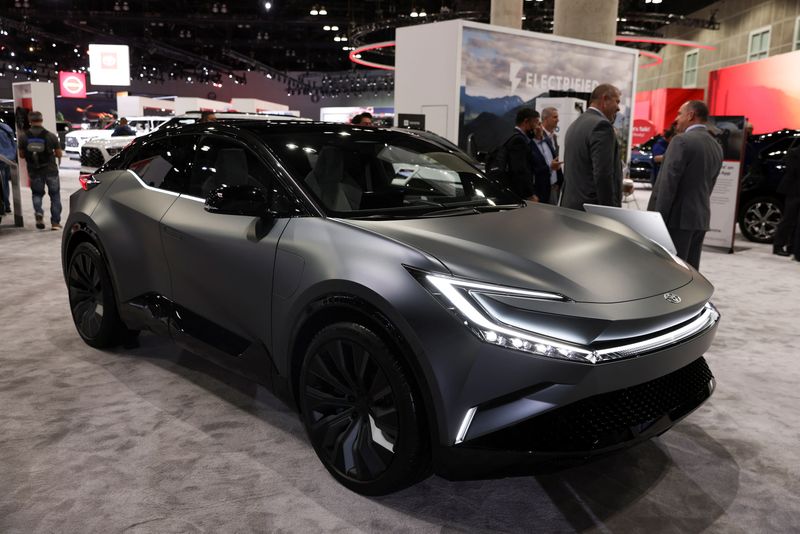By David Shepardson
WASHINGTON (Reuters) -White House senior adviser John Podesta said Toyota Motor Corp "had been the laggard" on producing electric vehicles but is now "fully committed" after he met recently with senior company officials at the Japanese automaker.
"I think they're going to stick with plug-in hybrids for a while, maybe longer than some of the other companies but they're fully now committed under their new leadership to electrification," Podesta told Reuters reporters and editors in a roundtable meeting on Tuesday.
He met with Toyota Research Institute CEO Gill Pratt and Toyota North America chief administrative officer Christopher Reynolds.
Last month, Toyota said it would introduce 10 new battery-powered models and target sales of 1.5 million EVs a year by 2026.
Toyota, including its Lexus luxury brand, now has just three battery models on the market and last year sold fewer than 25,000 of them worldwide.
Investors and environmental groups have criticized Toyota as slower to embrace battery-powered cars than Tesla (NASDAQ:TSLA) and others.
Toyota in August said it would boost its planned investment in a planned North Carolina battery plant from $1.29 billion to $3.8 billion.
Last month, the U.S. Environmental Protection Agency proposed sweeping emissions cuts for new cars and trucks through 2032. EPA estimates 67% of new vehicle sales by then will be EVs.
The Biden administration has repeatedly declined to endorse setting a firm date to phase out gasoline-only vehicles as California has done. "I don't think we think that's necessary at this point," Podesta said Tuesday.
White House infrastructure adviser Mitch Landrieu and Podesta met with Tesla CEO Elon Musk in January. Landrieu said in the joint Reuters interview with Podesta the administration had constructive conversations with Musk on EVs.
"They're a key player. They were the first ones out there," Landrieu said. "They were very open and workable and they've been a great partner."

Biden committed to building a U.S. network of 500,000 EV charging stations by 2030 using $7.5 billion in infrastructure funds.
"We got (Tesla)... to open up their network which took us much closer and much faster to the eventual goal of building the spine of EV charging stations. We have 500,000 of them we have to push out. We need about 3 million plus," Landrieu said.